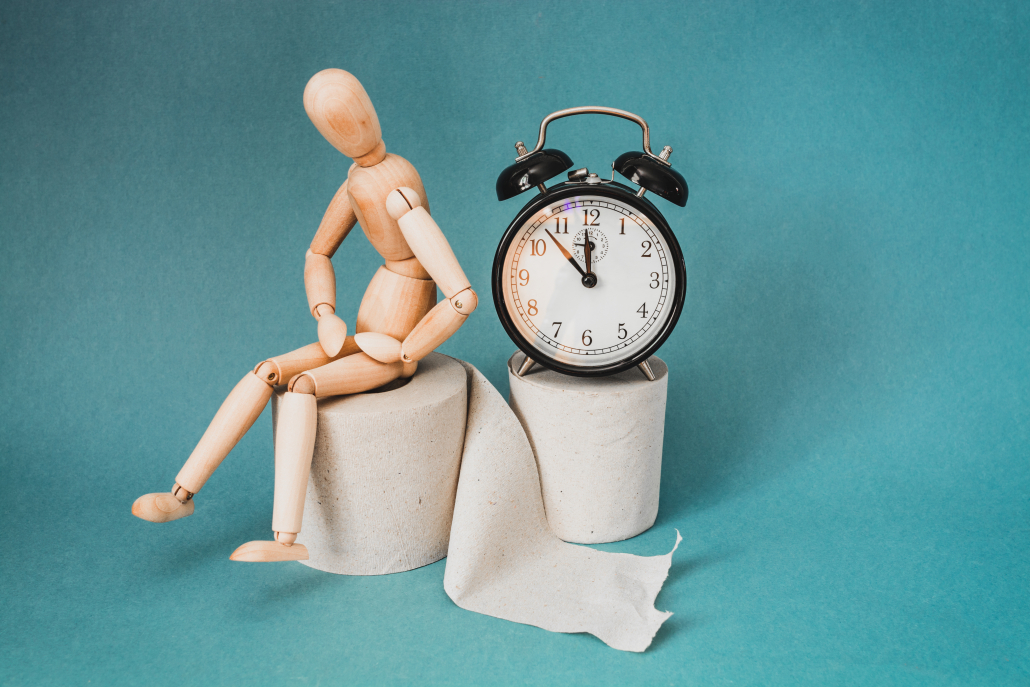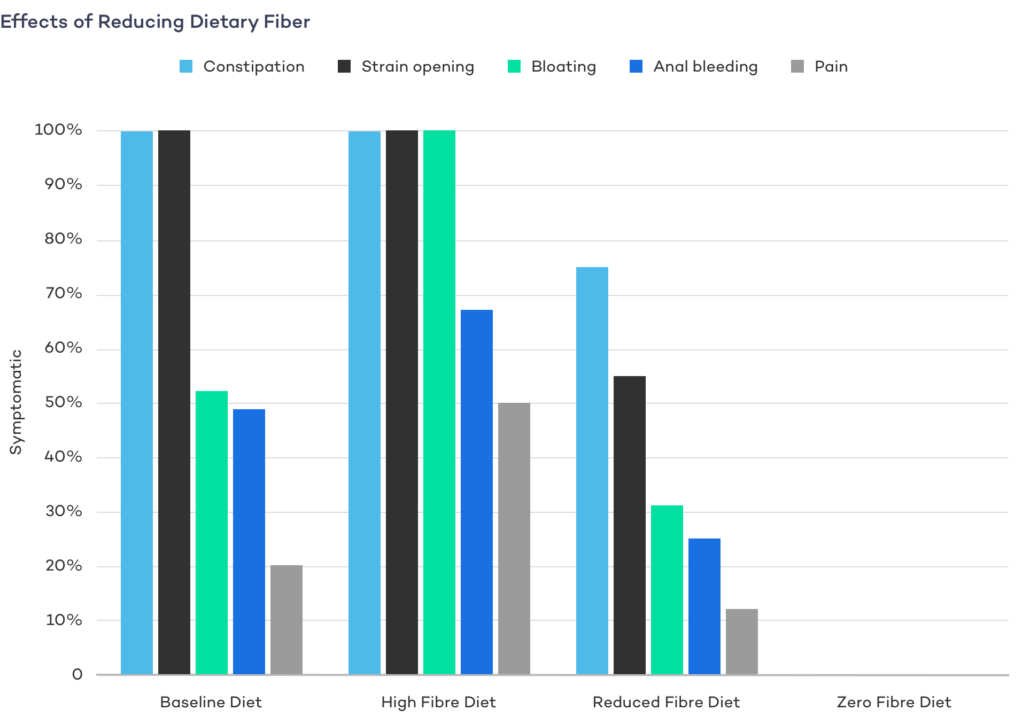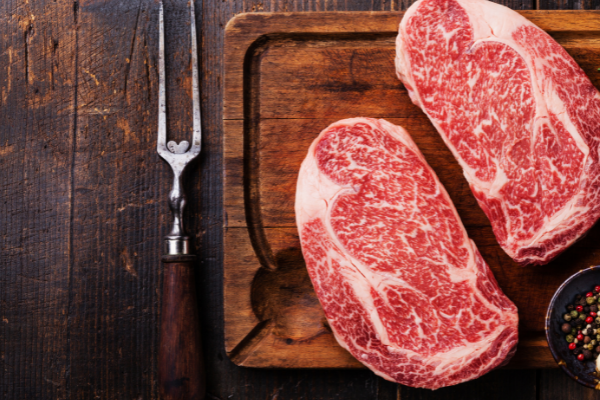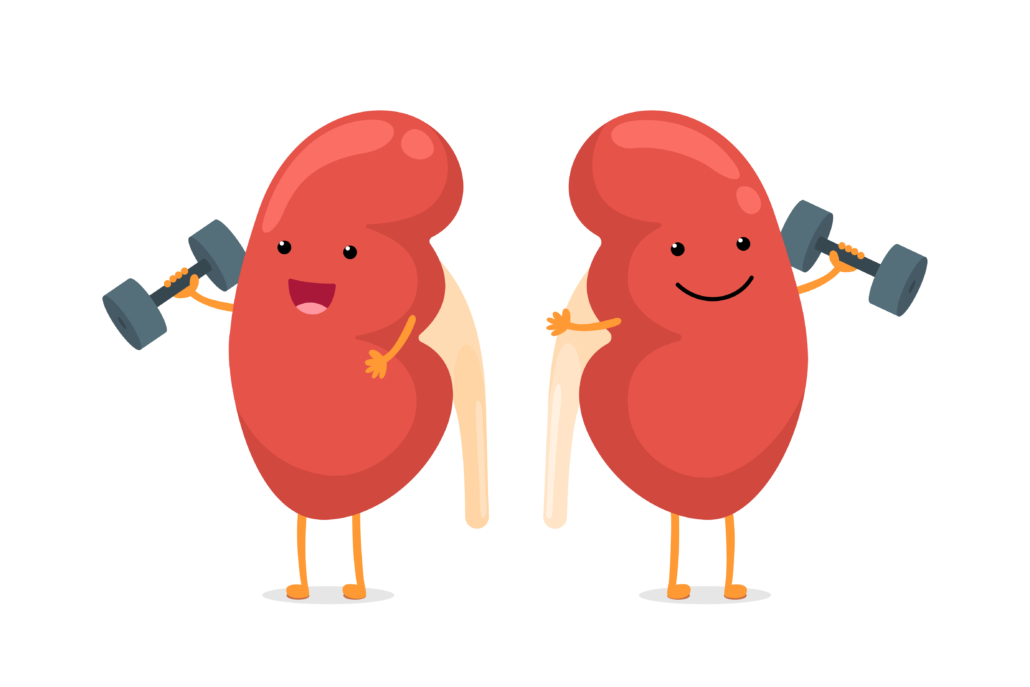We include products in articles we think are useful for our readers. If you buy products or services through links on our website, we may earn a small commission.
Carnivore Diet Constipation — And How to Fix It

Table of Contents
Many people who go carnivore are concerned that their new diet might cause constipation. After all, the carnivore diet has almost no fiber, and everyone knows that fiber promotes regular bowel movements…right?
The truth isn’t quite so simple. In fact, there are no studies that truly link fiber and bowel health — and some studies even suggest that excess fiber may be dangerous.
Yet some people still report having carnivore diet constipation.
If this sounds like you, it’s important to remember that any major dietary change will require equally major changes to the way your body processes food and expels waste. So for most people, it’s just a matter of time before your body regains its digestive balance.
That said, there are certain things to watch out for on a carnivore diet. The good news is that they’re all easily addressed.
Let’s take a closer look at carnivore diet constipation, what might be the causes, and helpful tips for how to get your bowls back into action sooner than later.
The Fiber Myth
Before getting into the heart of the matter, one especially persistent myth needs to be dispelled. A lack of fiber does not automatically lead to constipation.
On the contrary, new research shows that fiber may be a leading cause of constipation. One 2012 study published in the World Journal of Gastroenterology found that “stopping or reducing dietary fiber intake reduces constipation and its associated symptoms.” The study’s authors concluded that “the previous strongly-held belief that the application of dietary fiber to help constipation is but a myth.”
Far from showing that fiber may relieve constipation, the study “[showed] a very strong correlation between improving constipation […] after stopping dietary fiber intake.”
Another reason fiber isn’t so essential
Fiber’s nonessentiality is also evident based on the experience of millions of people who eat a mostly meat — or even all-meat carnivore — diet. The vast majority of these people do not have any problems with constipation.
That’s because meat and animal fat are completely digestible. They don’t leave much residue behind, so they simply can’t be a direct cause of constipation.
Unless you have unusual digestive issues or have had gastric bypass surgery, you probably won’t find undigested meat/fat exiting your body.
The same can’t be said of fibrous plant foods!
By definition, fiber is mostly or completely indigestible. The fiber we eat actually ferments within our bodies as it’s getting broken down by gut bacteria. This fermentation process produces aldehyde, alcohol, methane, gas, and heat. The heat generated by fiber can damage nearby organs, including the reproductive organs.
Here’s another poignant excerpt from the World Journal of Gastroenterology study mentioned earlier:
“A strong case cannot be made for a protective effect of dietary fiber against colorectal polyp or cancer. Neither has fiber been found to be useful in chronic constipation and irritable bowel syndrome. […] we often choose to believe a lie, as a lie repeated often enough by enough people becomes accepted as the truth. We urge clinicians to keep an open mind. Myths about fiber must be debunked and truth installed.”

What is Considered ‘Normal’ on the Carnivore Diet?
All of this fiber talk leads us to a practical conclusion:
It’s completely normal to poop less frequently on a fiber-free carnivore diet.
This is because meat takes longer to digest and assimilate than plant foods do. As your body adapts to your new diet, expect to experience a new pooping schedule. Your bowel movements will probably be pleasant, regular, predictable, yet less frequent.
However, in the transitional period from a high carb plant and processed food diet, to a carnivore diet, you may experience constipation. The good news is that we have some ideas that can help.
Causes of Constipation On a Carnivore Diet
Some of the most common potential causes of carnivore diet constipation include:
- Gut adaptation
- Changes to gut bacteria
- Stomach acidity
- Bile production
- Excessive protein
- Dehydration
- Inflammatory foods
Gut adaptation
Your gut goes through several types of changes when you first switch to the carnivore diet. It has to adapt to a drastically higher fat, reduced food volume, and higher protein intake. This adaptation phase can cause constipation, diarrhea, or other unusual bowel issues.
Changes to gut bacteria
Your gut microbiome is home to trillions of bacteria. When you jump from a high carb, high fiber diet to a low carb carnivore diet, the makeup of these bacteria undergoes a revolution.
Bacteria that had been feeding on carbs will probably die out, while bacteria that feed on fats will probably proliferate. This shift can temporarily slow transit time and cause constipation.
Stomach acidity
Protein is comprised of long chains of amino acids that your body breaks down using stomach acid and digestive enzymes. After getting broken down in the stomach, a protein’s amino acids enter the small intestine where they get absorbed.
This process is completely natural, but it might take some time for your body to ramp up stomach acidity in order to fully adjust to breaking down more meat. The higher your meat consumption, the more stomach acid your body will need.
When taking an evolutionary perspective, we see that humans have naturally high stomach acidity, which scientists point to as evidence supporting the perspective that indeed, we are made to eat lots of meat.
Bile production
Bile is a digestive fluid that plays a pivotal role in fat digestion. Bile is released from your gallbladder and liver whenever you ingest enough fat to trigger a certain hormonal response. Once released, bile emulsifies the fat you’ve eaten and helps your body break it down.
Bile production, just like stomach acid production, can take some time to catch up to the increased demands of a carnivore diet.
Excessive protein
Excessive protein is one of the most common — and most foundational — reasons some carnivores become constipated. Your body can only absorb so many amino acids each day.
Eating over 3-4 pounds of meat may overload your system enough to cause carnivore diet diarrhea or constipation. To avoid eating too much protein, we recommend selecting fatty cuts of meat. Choosing fatty meats will also help you avoid gluconeogenesis, a process where your body converts protein to carbohydrates for fuel.
When we look at how humans developed to store fat on our bodies and then break it down for fuel, combined with the strict biological limits for how much protein we can absorb, we see that for humans, being a carnivore means focusing on fat over protein.
Dehydration
One of the first positive things you might notice about the carnivore diet is its ability to promote quick weight loss.
Though some of this initial weight is indeed fat, most of it is water weight that was previously being stored with glycogen (carbohydrates) in your liver and muscles.
When you eat less than 100 grams of carbs per day, your body breaks down this glycogen–and each glycogen molecule is attached to lots of water molecules, which you expel through urine.
This water loss comes with the potential for an accompanying loss of electrolytes, some of which have a natural laxative effect.
In other words, carnivore diet constipation can easily happen if you’re dehydrated and running low on electrolytes.
Nutrient deficiencies
Preexisting nutrient deficiencies can also make it harder for your body to adapt to the carnivore diet.
Adequate vitamin D and A levels, for example, are essential for regulating the bile acid production we mentioned earlier. Unfortunately, over 90% of Americans are currently deficient in vitamin D.
The graph below shows just how dismally low most people’s vitamin and mineral levels have gotten:
How to Avoid Constipation on a Carnivore Diet
Avoiding or reversing carnivore diet constipation is as easy as doing the opposite of what’s seen with the problems above. Potential fixes include:
- Hydration
- Avoid inflammatory foods
- Balance electrolytes
- Supplement with ox bile/HCL
- Move more
1. Hydration
Ensuring adequate water intake is always important — and it becomes even more crucial when you go carnivore. Dehydration can pull water out of your colon and make it difficult for you to pass stool.
As we said earlier, when restricting carbs, you’ll probably drop a few lbs when your body sheds its glycogen stores. But don’t get too excited about the lost water weight.
Instead, make a concerted effort to stay hydrated by drinking more water and eating more salt than normal–more on salt in the electrolytes section.
How much water is enough? Many health experts recommend 2 liters of water per day, but it wouldn’t be unwise to go up to 2.5 liters as you transition to carnivore.
Larger individuals may need to increase their water intake even more. Paying close attention to your urine color is an easy way to check for dehydration — it should be light yellow, not dark or bright yellow.
Don’t be daunted if 2.5 liters of water a day sounds like a lot. Beverages like bone broth and coffee also count towards your daily fluid intake! While it was once thought that caffeinated drinks were dehydrating, newer research shows that coffee and tea are net hydrating.
Caffeinated beverages can help with carnivore diet constipation in another way, too. The caffeine stimulates colon intake enough to provide a natural laxative effect that’s 60% stronger than water’s.
2. Drink Bone Broth
Keto bone broth is loaded in electrolytes and amino acids that can aid your body in making the digestive transition to a carnivore diet.
In addition, the gelatin in bone broth attracts and holds water in your gut, which helps food move more freely through your digestive tract.
Many people turning to a carnivore diet do so in an attempt to alleviate pre-existing digestive disorders. So it’s encouraging that in animal studies, gelatin can heal and protect the delicate mucosal lining of the digestive tract. Though more research needs to be done, researchers believe that it likely has the same effect on humans. [8] [9]
3. Avoid inflammatory foods
Most people who try the carnivore diet find it powerfully anti-inflammatory. That’s no surprise — the carnivore diet eliminates lectins, phytates, processed sugar, processed seed oils, and all sorts of other toxin-rich and inflammatory foods.
Yet certain carnivore foods can also trigger enough inflammation to cause constipation. Eggs and dairy are the major culprits. The inclusion of dairy in the carnivore diet is controversial anyway, and not really necessary.
Consider removing these potentially inflammatory foods if you’re experiencing constipation. Or try switching to raw dairy, which some people find less allergenic. Things will likely improve.
4. Balance Electrolytes
Electrolytes like sodium, magnesium, and potassium are essential factors when it comes to keeping your bowels moving.
Magnesium
helps your muscles, including the smooth muscles of the colon, which means it has a natural laxative effect. Magnesium also helps balance out high calcium levels which could otherwise lead to constipation.
One study of 244 women struggling with constipation found that hydrating with magnesium-infused water helped much more than hydrating with ‘regular’ water.
Drinking mineral water is a great way to up your magnesium intake. And if you choose to supplement, be sure to select magnesium glycinate or another bioavailable option.
Sodium
When you’re eating a low-carb carnivore diet it’s common to go into ketosis. In this state, your kidneys excrete lots of sodium into the urine. At the same time, you’re probably cutting out processed foods loaded with salt.
It may be important for your digestion (and overall health), to rebalance electrolytes.
Doctors familiar with low-carb eating recommend eating 12 grams (2 tsp) of salt per day in the first few days of adapting to a low-carb carnivore diet. Once you’re adapted we recommend consuming at least 5 grams (approx 1tsp) every day to avoid fatigue, headaches, and yes, constipation.
5. Supplement with ox bile and HCL
If you’ve gone keto-carnivore and you’re still struggling to upregulate bile production, supplementing with digestive boosters can help.
Supplemental ox bile provides a convenient way to assist your own liver’s production of fat-digesting bile. Bile, in turn, can boost your body’s absorption of some of the most important fat-soluble vitamins.
Hydrochloric acid supplements like betaine HCL can also be used to make the transition to carnivore a little smoother. The choline found in beef and chicken liver may also help with fat digestion.
6. Move more
Proper digestion isn’t just a chemical process. It’s also physical.
Proper movement can help keep you regular. Going for a brief walk after each meal allows your abdominal muscles to contract and gets your bowels moving.
Walking after a meal can also keep your blood sugar stable. Exercise can also reduce stress and anxiety, both of which can contribute to constipation.
These benefits were well-known by ancient cultures, as one Asian proverb explains: “If you take 100 steps after each meal, you’ll live to 99.”
Carnivore Diet Constipation: The Takeaway
Carnivore diet constipation is a real thing.
Thankfully, it’s usually temporary and reversible. By staying hydrated, avoiding inflammatory foods, balancing electrolytes, supplementing with ox bile/HCL, and moving more, you should be able to avoid constipation on the carnivore diet entirely.
And remember, pooping less on a carnivore diet is normal. Animal meats and fats are completely digestible and produce less waste than a diet filled with plant fibers.
















